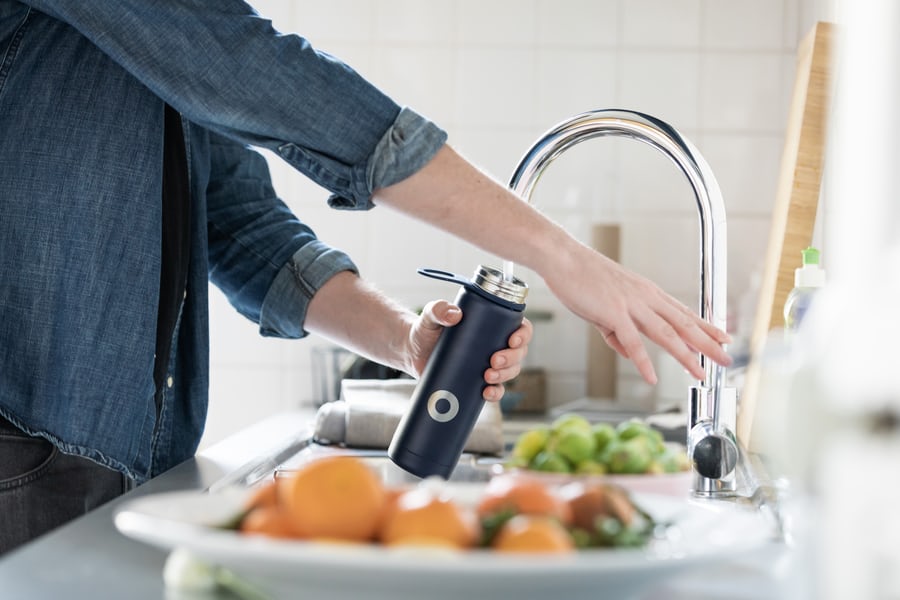A 6-Step Guide To Choosing The Right Water Filtration System For Your Home
Water is essential to life. We consume water every day, from cooking to doing our laundry to keeping our bodies hydrated. It is so important to us that our survival depends on it on a cellular level. Therefore, it isn't strange to be concerned about how clean your water is or making sure it stays clean. In this article, we will look at six steps to take into consideration while choosing a water filtration system.

1. Find Out What Is Contaminating Your Water
It isn't news anymore in the U.S. that water is heavily contaminated, from lead in old rusty pipelines to microbes, VOC (volatile organic compounds), fluorine, pesticides, and arsenic. These toxic substances vary in concentration from place to place; it is crucial to test the water in your area, find out what compounds are predominantly present in it, and look into the appropriate system for your specific filtration needs. In the United States, companies produce a consumer confidence report every year that details the water quality in different areas.
The downside to this report is that it doesn't consider impurities that can get into the water as it moves from the company into your pipe. Therefore, it is better to test it straight out of your tap. Licensed laboratories around your area should be able to carry this test out easily.
2. The POU and POE Water Filter Options
After you find out the impurities in your water, the next step is to get the appropriate filter for your home. Before we go on, we will discuss the two types of filters widely used in homes. The POU (Point of use) filters treat water at the point of consumption - usually, a sink or showerhead. While POE (Point of Entry) filter treats all water as it comes into the house.
A clear understanding of these options and their different uses is crucial when making your decision. This basic awareness will also be helpful if you're going to be asking for water filtration advice from experts while deciding which system is right for your home. Both options have their specific merits and flaws; which is why expert advice can be quite useful in this case.
3. Source of Water Supply
You may get your water supply from water companies like most individuals, or you may be from the select few who draw from a well. Whichever your source is plays a significant role in choosing a reliable water filtration system. We mentioned earlier in the article how testing your water is necessary, but also knowing which river, stream, or well it comes from can influence your decision.
Unfortunately, homes close to pharmaceutical companies, oil or gas companies, vast farmlands, or manufacturing plants may find that different types of waste seep into their water.
4. What to Consider When Choosing Filter Option
Choosing the filter to use will depend on certain factors. Some factors may include:
The Number of People in the House
Are you a couple or a large family? This information can help you be aware of the amount of water you need to have filtered on a daily basis.
The Essential Reason behind Filtering your Water
Are you filtering to drink and cook with the water, or do you also need it for other activities like bathing and laundry?
An essential point to remember when buying your filter is to make sure it is ANSI (American National Standards Institute) certified. Examples are WQA Gold Seal or NSF. Be vigilant and go through the fine prints of these filters; it's not uncommon for sales agents to oversell their products.
5. Installation
The installation of the filter will depend on the type you choose to install. If you prefer to install a POU filter, you can DIY or get a plumber to install it for you, as most POU filters are not complicated to install. If you will use a POE filter, you need to set up an appointment with a certified plumber supplied by the manufacturers, if they offer those services, or you can look into hiring an accredited plumber since the installation is much more complicated.
6. Maintenance and Replacement
One thing you want to avoid is buying a quality filter without planning for the unavoidable maintenance costs that come with it. Buy a filter that you can afford to preserve in tip-top shape; set a periodic reminder for maintenance as a dirty filter defeats the purpose of owning one. There will come a time when you would have to replace your filter. Make sure you replace it in due time for your own safety.

Overall, it probably seems like a troublesome and confusing endeavor, picking the perfect water filtration system, but it is also worth it because of its importance for our wellbeing. Impurities found in water nowadays can be extremely harmful to our bodies' health; from causing ailments linked to lower IQ in children, to bone malfunctions to lead poisoning and, in some cases, death. One cannot underestimate the relevance and importance of this information. This article's aim is to have our readers be better informed when choosing their future water filtration system; we hope it fulfilled its goal.